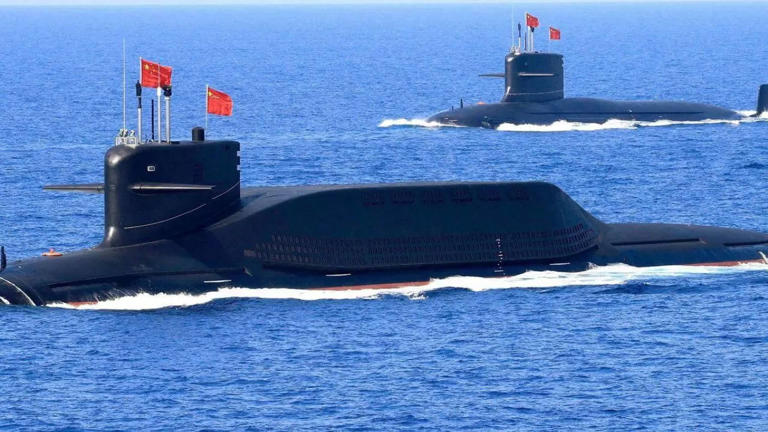beijingwalker
ELITE MEMBER

- Joined
- Nov 4, 2011
- Messages
- 65,195
- Reaction score
- -55
- Country
- Location
New Chinese thermoacoustic Stirling engine breaks power record
Combining the principles of thermoacoustic generators and Stirling engines, a new Chinese engine could make ultra-quiet non-nuclear submarines.Christopher McFadden
Published: Nov 14, 2023 06:31 AM EST

The new generator could help develop ultra-silent submarines.
China has reached an important milestone in developing a high-efficiency thermoacoustic Stirling generator, according to the South China Morning Post (SCMP). Developed by researchers at the Technical Institute of Physics and Chemistry (TIPC) at the Chinese Academy of Sciences (CAS), the new engine delivered a groundbreaking 140 hp (102 kilowatts) of power from a heat source of 986 degrees Fahrenheit (530 degrees Celsius). According to the SCMP, this is the first time that this type of breakthrough generator has gone over 134 hp (100 kilowatts).
Super quiet submarines
Such engines theoretically have several exciting applications, one of the most interesting being a power source for ultra-quiet submarines. Previous work on this kind of generator includes NASA's patented LEW-TOPS-80 paired with an alternator to generate electricity in space. To date, NASA has not created a working prototype.A thermoacoustic Stirling generator is an advanced energy conversion device that combines thermoacoustic engines with Stirling engine technology. It is exciting because it can transform thermal energy into electrical energy without using any moving parts at non-ambient temperatures, making it more reliable and efficient.
As sound waves travel through gases, parcels of gas are compressed and expanded adiabatically, meaning that the process occurs without transferring heat to the surroundings. This results in changes in pressure and temperature within the gas. When the pressure reaches its maximum or minimum, the temperature reaches its maximum or minimum. To this end, the new Chinese generator integrates a motor that can directly convert sound into electrical energy, pushing the boundaries of traditional Stirling engine designs.
This technology is seen as a game-changer for distributed energy systems due to its versatility and efficiency. It can be combined with different heat sources and could change how energy is generated, providing solutions for various energy needs.
According to Professor Hu Jianying of TIPC, the Chinese generator has a dumbbell-like shape and is about 6.5 feet (2 meters) long. It also operates with impressive efficiency. “The current thermoelectric conversion efficiency is about 28 percent; with a hotter 600-degree thermal fluid, efficiency could reach 34 percent,” he said.
Professor Luo Ercang of TIPC highlighted the generator's reliability, simple design, few moving parts, and compatibility with various heat sources as factors that enable it to rival the efficiency of steam turbines. “It operates quietly and efficiently and can use different types of heat, including solar energy, waste heat, and biomass,” a CAS statement quoted Lou.
“High-pressure helium at 15 megapascals serves as the working medium, and the absence of mechanical parts needing lubrication means the generator could exceed a decade of lifespan,” Jianying explained. He also noted that the motor's design avoids vibrations and maintains an airtight seal. “The linear motor, consisting of a piston driven by sound waves, permanent magnets, and coils, contributes to the high conversion efficiency. Its symmetrical design also eliminates some harmful vibrations,” he explained.
Many other applications
“The linear motor keeps a very tiny space, about the thickness of a human hair, between the piston and cylinder. This prevents the parts from touching while maintaining the internal airtight environment," added Jianying. “It is a promising new generation technology for solar thermal, biomass power generation, and distributed energy systems,” he said.
New Chinese thermoacoustic Stirling engine breaks power record
Patented by NASA but never developed, Chinese scientists have managed to reach a major milestone in the development of a thermoacoustic Stirling engine.




